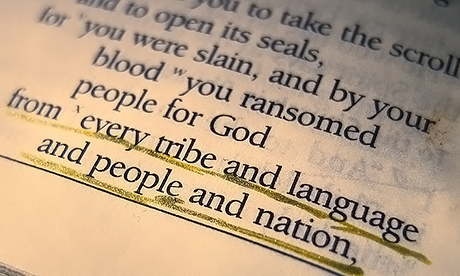God is not in the minority… This is an assertion I can make only through faith and Scripture.
I believe that God’s presence is expressed in every heart and in every reality, beyond the signs and words (religious or otherwise) that express this presence.
“The wind blows where it pleases; you can hear its sound, but you cannot tell where it comes from or where it is going. So it is with everyone who is born of the Spirit,” (John 3, 8).
Here in France, our experience and sociology tell us that Catholics – those men and women who affirm their faith in God and live out the ordinary signs of that faith, including community prayer – are now in the minority.
And yet, we do our utmost to hold onto the former signs of God’s presence, including those churches and buildings that are often no more than traces of it.
Sometimes we also believe that visible, even violent, public affirmations of God are what would please and serve the Divine. What a waste of energy, even misdirection.
Who would think that the words and attitudes of Jesus Christ would encourage displays of power?
The head of state must not be confessional
The fact that Catholics are in a minority not only concerns their percentage of the population as a whole, but also expresses itself in institutions.
The French Revolution put an end to the “very Christian king”.
The Third Republic, with the law of December 9, 1905, formally decreed the Separation of the State and the Churches.
Admittedly, the public and political link between the State and the Catholic religion in France lasted for many centuries, from Clovis to Louis XVI.
But this model can in no way be based on any requirement of scriptural or Church teaching, and it is up to each people to choose its own political regime.
Nowhere does Christian tradition demand that heads of state or public institutions be confessional, or that they implement religious laws.
The only thing the Church expects is religious freedom, the freedom to believe in whomever and whatever one chooses, as long as this belief does not infringe on public liberties.
The idea that the only good ruler is a believer, and a Catholic one at that, is not an idea that Christian thought suggests.
When the Bible speaks of praying for our governmental leaders, it is not with a view to converting them, but so that “we may be able to live peaceful and quiet lives with all devotion and propriety” (1 Timothy 2, 2).
Suspicion
However, my remarks cannot ignore the long history of the alliance between the army and the clergy.
Suspicion has long been rife in people’s minds: suspicion of a political power seeking to control religions, suspicion of a religious power seeking to impose its views on the nation and its leaders.
Fortunately, I don’t have my hands on people’s hearts, or on the suspicions they may harbour, but the law of our country is clear, and could allay many unfounded fears. Marseille is worth a Mass!
And as Catholics, let’s have the humility to accept our institutional minority, for example by choosing just a few places – one or two churches for every sprawling parish cluster – so that the presence, attention and commitment of human life can mobilise us.
This is where we will discern signs of God: human life must be the place of our closeness.
The churches – our churches that we have inherited and to which many people are attached – are the vestiges of the faith of others, of the faith of the generations that preceded us.
Churches speak of yesterday. But with each generation, the Church must be born anew.
- Pascal Wintzer is the Catholic archbishop of Poitiers (France), a post he took up in 2012.
- First published in La-Croix International. Republished with permission.
News category: Analysis and Comment.




